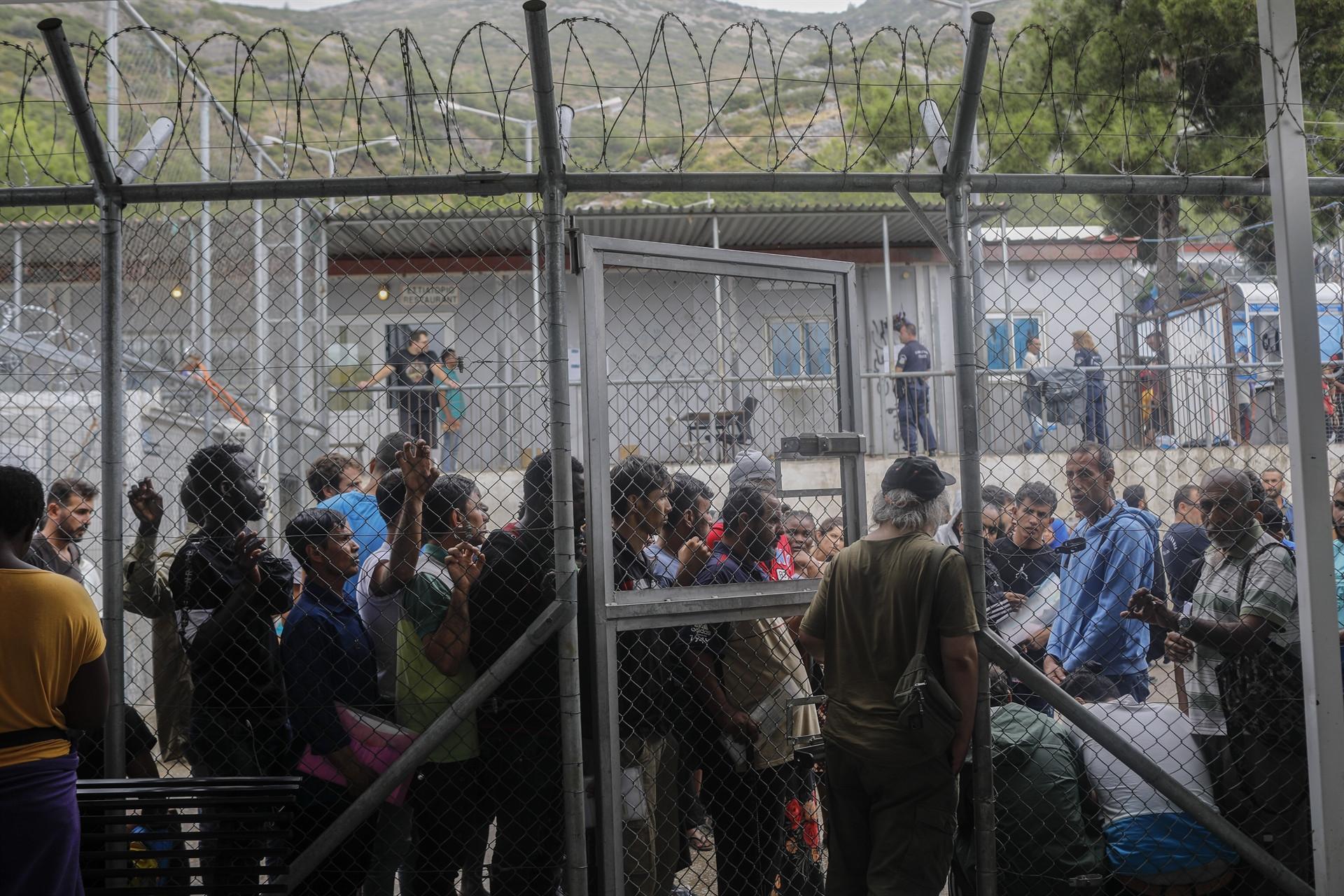
Greece announced a plan on Nov. 20 to massively overhaul its overcrowded migrant camps on islands facing Turkey and make borders ‘air-tight’ against a feared new surge of asylum-seekers.
“Decongesting the islands is a priority at this stage,” the government’s special coordinator for migration Alkiviadis Stefanis, a former army general and chief of staff, told a news conference.
“These actions are designed to show our determination in dealing with the migrant-refugee crisis,” said Stefanis, who is also deputy defence minister.
The government wants to make borders “air-tight” and will hire 400 additional guards for the land border with Turkey and 800 for the islands, he said.
Three camps are to be closed, on the islands of Lesbos, Chios and Samos, currently housing over 27,000 people under terrible conditions which have been repeatedly castigated by rights groups. They have a nominal capacity of just 4,500.
The Greek government said it would replace the camps with new closed facilities for identification, relocation and deportation with a capacity of at least 5,000 people each.
Smaller camps on the islands of Kos and Leros are also to be remodelled along these lines and enlarged, Stefanis said.
Instead of being allowed to move freely in and out of the camps, asylum-seekers will now be locked up until they are granted refugee status and relocated to the mainland, or they are rejected and sent back to Turkey, officials said.
In the new camps, asylum-seekers will stay in containers and have access to refectories, schools, and places of worship, Stefanis said.
The government has vowed to relocate 20,000 asylum-seekers to camps on the mainland by early 2020.
Fifteen thousand will stay in camps and 5,000 in hotels, Stefanis said.
Four years after the 2015 refugee crisis, Greece has again become a key point of entry for asylum-seekers to Europe.
According to government figures, there are over 37,000 asylum-seekers on the islands, and hundreds arrive daily, capitalizing on mild weather conditions.
The International Organization for Migration says there are an additional 22,000 people in camps on the mainland, which are nearly full or already past capacity.
The new conservative government which came to power in July has already passed a law stiffening asylum requirements for migrants, which was criticized by rights groups as harmful to the interests of vulnerable asylum-seekers.